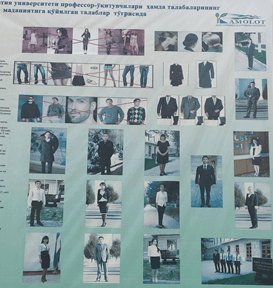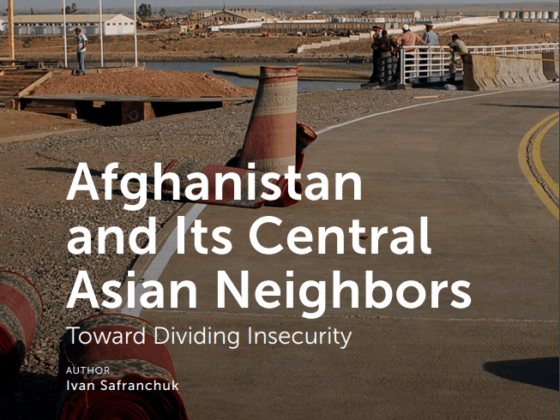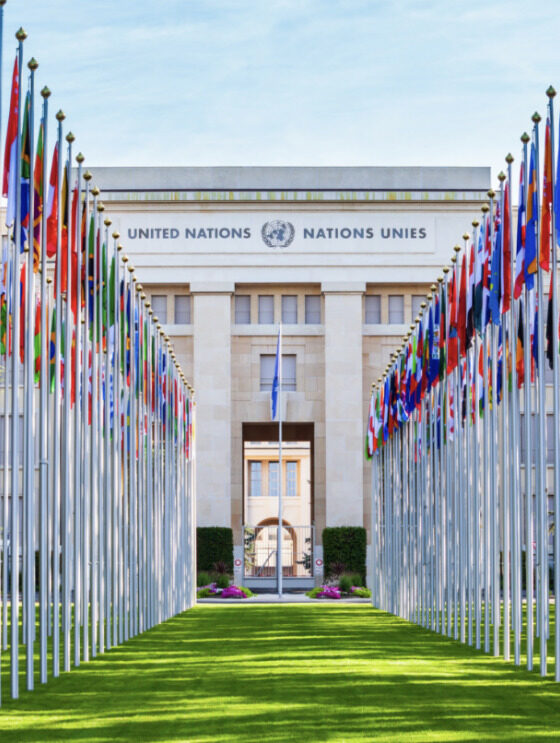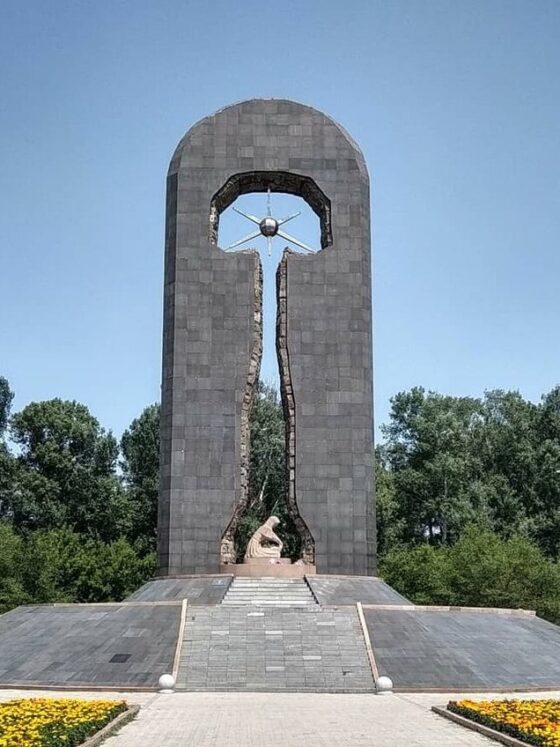By Rafael Sattarov
CAP Papers 196 (Fellows papers series), October 2017
Download PDF
Rafael Sattarov is a political analyst. He is a graduate of the University of World Economy and Diplomacy in Tashkent, Uzbekistan. He has a Master’s degree from the National Research University Higher School of Economics in Moscow. He is a columnist of several editions in Russia and Kazakhstan and has edited articles on economics and politics in Forbes Russia, Lenta.ru, and Russia Beyond the Headlines. He was a delegate of the Young Educational Leaders Program of NATO. His research interests include reforms of the socio-political and economic systems in the post-Soviet space, U.S.-Russia relations after the end of the Cold War, U.S. policy in Central Asia, international relations in Eurasia and the geopolitics of Central Asia and the Caucasus.
Russia remains the most studied country in the post-Soviet space in relation to the promotion of so-called “conservative values.” However, this trend stretches across Eurasia and actually began in other republics earlier than it did in Russia. Uzbekistan has been at the forefront of this movement: it began structuring its ideology of national independence around the doctrine of “spirituality and enlightenment” (Ma’naviyat va Ma’rifat) in the 1990s, and institutionalized this as a quasi-Ministry of Ideology in 2004. The goal of Ma’naviyat is to offer a secular ideology that occupies the space left by the disappearance of Marxism-Leninism, and thus to prevent competing ideational projects—chiefly the Islamic project—from taking root in Uzbek society. In this paper, I study the rise of Ma’naviyat va Ma’rifat as a political tool for controlling society. I then go on to address its probable disappearance: since the death of Islam Karimov in September 2016, the Uzbek leadership seems to have begun to move away from this ideological construct inherited from the late “father of the nation.”
The State, Guardian of the Nation’s Moral Principles and Traditions
In the early 1990s, Uzbekistan wavered in terms of its ideology. It first tried to promote pan-Turkism and the notion of Turkestan, but this agenda was already being advanced by opposition parties such as Erk and Birlik. Moreover, the Uzbek leadership was concerned about Turkey’s attempts to replace Russia in playing an “older brother” role toward Central Asia, and therefore sought to avoid promoting themes of Turkic unity too openly.
In the second half of the 1990s, the country progressively withdrew in isolationism, rejecting almost all regional cooperation, and consolidated an authoritarian regime. Alisher Ilkhamov states that the Karimov regime could be regarded as “hard” authoritarianism, while Kazakhstan and Kyrgyzstan are associated with comparatively “softer” variants of neopatrimonialism: “At the beginning of Karimov’s presidency, the authoritarian regime in Uzbekistan was comparatively ‘softer’ but it clearly drifted toward a tougher, exclusive, style of governance characterized by the exceptional and unchecked use of power” after the Andijon popular riots and the repression.[i]
The consolidation of Karimov’s authoritarian rule went hand by hand with the structuring of a new ideology, according to which the state is the primary guardian of the moral principles and traditions of the nation. Andrew F. March defined Islam Karimov’s ideology—or Karimovism— as a “National Ideology of Uzbekistan.” However, I consider Ma’naviyat va Ma’rifat to be the core of Karimov’s personal ideology, rather than that of his country. Its founding father was Ozod Sharafiddinov (1929-2005), an intellectual, academic and writer[ii] who served as a Karimov biographer and the unofficial head of the leader’s “court writers.” During Soviet times, Sharafiddinov served as Secretary on Ideological Issues for the Uzbek Communist Party and led the National University of Uzbekistan branch of the Communist Youth, the Komsomol. His ideological trajectory encapsulates how Uzbek politicians and intellectuals moved from Communism to nationalism.
According to Karimov and his ideologues, Uzbek state and society were at risk of losing their way. “Wherever an ideological vacuum arises it will naturally be filled by another ideology,” declared Karimov.[iii] Therefore, it was determined that the regime should fight against external influences and threats. Some were clearly identified: Western values, deemed decadent; Western foreign influences (the US, Great Britain, Europe at large, all those promoting “color revolutions,” the George Soros Foundation, and sometimes even the Aga Khan Foundation); and radical Islam, seen as a path that “good Muslims” should avoid. Karimov proclaimed, for instance, that the modern West and mass culture “want to destroy traditions and classic culture, so for this purpose the Uzbek people should develop our own ‘ideological and spiritual immunity.’”[iv] The path to this, he indicated, was clear:
In order to protect our people from various ideological threats, to inculcate in society an ideological immunity, it is necessary to arm it with an authentically humanist ideology, comprising in itself a powerful impulse toward the spiritual uplifting of the nation.[v]
In response to these risks, Ma’naviyat’ advances moral principles such as state paternalism and traditional values: national traditions, patriotism, respect for elders, the celebration of labor, and mahalla as Uzbek civil society. It insists on gender roles: men should remain the breadwinners, and while women can work, they should focus on family issues and occupy a secondary role in household decision-making. Ma’naviyat’ also promotes a conservative dress code – modest for girls (but no hijab), neat and formal for men (no beard or long hair).
The mission of Ma’naviyat va Ma’rifat can be divided into four main areas:
- Promoting Uzbekistan’s special path;
- Ensuring loyalty to and support for the regime;
- Protecting Uzbek society from Western values; and
- Preventing young people from having access to mass culture.
Censorship and Banning in the Name of Ma’naviyat
Every authoritarian regime is based on the ideology of self-protection. To a greater extent even than in Russia or Belarus, special service workers and representatives of spiritual education centers have penetrated all Uzbekistan’s state institutions. Since 2004, a wide network of spiritual centers under the umbrella of the Republican Center for Spiritual Propaganda, a kind of Ministry of Ideology, have taken control over the country’s cultural life.
The state agency O’zbek Konsert,[vi] for instance, is responsible for controlling the public life of pop stars, including monitoring their speech and enforcing a dress code. In 2014, pop-singer Lola was banned from Uzbek TV and media for wearing a red dress considered too provocative during the concert of Rayhona, another popular singer. According to O’zbek Konsert, her dress “conflicts with the national mentality.” The agency went on to comment, “It is a great shame for an Uzbek woman to wear such kind of dress, because they manipulate young people and destroy their spirituality.”[vii] Deputy Prime Minister Elmira Bosithonova continued the attacks:
How can one explain the fact that some of our female singers are dressed in a more than revealing style, completely divorced from the national style, and appear on television channels intended for family viewing, singing songs with messages that aren’t subjected to any criticism and in frivolous video clips?[viii]
Repressive measures have also targeted the vibrant Uzbek cinema scene. Many TV scenes are censored or cut. One of the leading lights of filmmaking in Uzbekistan, Zulfikar Musakov, responded to state television’s blatant censorship of his own film by writing an open letter.[ix] To avoid such censorship, many Uzbek musicians, filmmakers, and rock-stars have moved to Istanbul, Moscow and Almaty, making these three cities new informal cultural centers for Uzbek intellectuals. According to the journalist Ali Feruz (whose real name is Khudoberdi Nurmatov), a contributor to the Russian liberal newspaper Novaya gazeta, around 1,500 Uzbek journalists and musicians now live and work in Russia because their works are banned in Uzbekistan.
The Uzbek government and security services have created an unofficial government blacklist noting all those who are not allowed to work in government, travel to foreign countries, or move from their city to other regions of Uzbekistan. One person to suffer such repression is the Uzbek photojournalist Umida Akhmedova. A recipient of the 2016 Vaclav Havel International Prize for Creative Dissent, she was accused of “slander[ing]” and “insult[ing]” her own nation—as well as the traditions, spirituality and cultural heritage of Uzbekistan[x]—for publishing a series of photos about life in rural Uzbekistan. On December 16, 2009, criminal charges were filed against her for her involvement in the aforementioned project as well as other gender and human rights media projects, including “The Burden of Virginity,” which discusses the difficulties faced by women in Uzbekistan. The criminal charges carry a possible prison sentence of up to six months, or 2–3 years of forced labor, and she was banned from leaving the country. That being said, the situation seems to have changed since Karimov’s death: Akhmedova has, for instance, been allowed to organize her media project Smirnoe nebo (obedient sky)—a play on words, because a state propagandist has characterized the regime’s stability as Mirnoe nebo (peaceful sky).[xi]
Ma’naviyat as a youth policy
Ma’naviyat also plays a pivotal role in structuring Uzbekistan’s youth policy. The Communist youth movement, the Komsomol, disappeared with the Marxist-Leninist ideology upon the collapse of the Soviet Union. However, the Uzbek government quickly became concerned about the politicization of youth. In 1992, student unrest—organized on Tashkent campuses by students and activists close to the opposition parties Erk and Birlik—was brutally crushed by the regime.[xii]
In the aftermath, Karimov’s entourage decided to reanimate and rebrand the defunct Komsomol structure. This drive to control the country’s youth accelerated in 1995, when the relatively liberal then-Chairman of the National Security Service Gulam Aliyev (seconded by the Deputy Chairman Abdulaziz Kamilov, now Minister of Foreign Affairs) was replaced by the conservative Rustam Inoyatov, who remains in power to this day.[xiii] In 1996, the authorities launched the youth organization Kamolot, and its counterpart for schoolchildren, Kamalak, designed to replace the Soviet Pioneers.
Kamolot aims to “unite the youth of the country in order to build a free and prosperous Uzbekistan; assist in rendering a youth that is spiritually mature, with a thoughtful and independent-minded outlook, with good command of the principles of national ideology, and adherent to national values; [and] provide the conditions for growing the image and prestige of the nation.”[xiv]
I interviewed two young pro-Ma’naviyat activists: Alisher Sadykov, a Kamalot leader from Andijon, and Mirjalol Mirzakhidov, Lead Coordinator at the Young Leaders’ Development Project in Tashkent. According to them, youth is the most vulnerable age group, since young people are susceptible to dangerous ideologies. For Alisher Sadykov, Ma’naviyat is the only way to protect the Uzbek people from mass culture and same-sex marriage. “Sometimes our spirituality is more important than economic growth and Western-type modernization,” he explained.
Under the umbrella of the Department of Youth Policy of the Presidential Administration of Uzbekistan, the ideology of Ma’naviyat took deep root in the educational sphere. It became a mandatory subject for pupils at secondary schools, who have to study the “Ideology of National Independence,” while higher education students study “Spirituality and Enlightenment.” Ma’naviyat is taught in all educational institutions, from secular secondary schools to military academies. For example, the soldiers of the Uzbek army take an exam in Ma’naviyat asoslari that counts for 35 percent of their entrance tests.
With the exception of branches of foreign universities located in Uzbekistan, which include Westminster University, Singapore Institute of Management, Turin Polytechnic University, and Moscow State University, each higher education institution has been given a deputy rector in charge of supervising ideology and the ideological loyalty of the students. This deputy rector is in charge of:[xv]
- Monitoring spiritual-education work at universities;
- Monitoring the implementation of orders and Ministry instructions connected with spiritual-education work;
- Participating in meetings for electing and dismissing assistant deans on spirituality- enlightenment work;
- Instructing deans of faculties and heads of departments concerning spirituality and enlightenment issues;
- Monitoring and assessing the performance of professors and teachers on the topics covered in the program “Work on spirituality and enlightenment”;
- Preparing the dean’s assistant’s report on accomplished work for submission to the chief of the department on spiritual-education (following the release of grades for each semester); and
- Encouraging the faculty employees, departments and chairs who are most active in promoting spiritual-enlightenment work.

A poster about dress-code rules at the University of World Economy and Diplomacy
Official Islam vs. Ma’naviyat
Last but not least, Ma’naviyat is displayed as a way both to counter and to coopt Islam. Diora Ziyayeva and Martha Brill Olcott explain that Uzbekistan’s ruling elite tried to recast Islam as an ideology for the new government, using the slogan “Our (national) Islam.” Though they used this notion to promote an overarching national identity and create their own official, national Islam (linked to O’zbekchilik), officials seek to control any activities related to Islam, especially in the sphere of education.
Official Islam is totally under the control of state structures, particularly the security services (SNB). Eight madrasahs, the Islamic University, and the Tashkent Islamic Institute educate all the country’s religious officials. Most of them cooperate with the SNB and the Committee for Religious Affairs under the Cabinet of Ministers of Uzbekistan. Between 10 and 15 students can be educated abroad in Egypt, Saudi Arabia or Pakistan, and then only after recommendations from the Committee and the SNB. Ma’naviyat asoslari is a compulsory subject in religious institutions. Each imam undergoes a short course of study of Islam Karimov’s works, the state policy against extremism, and the spiritual legacy of Uzbekistan.
In its own way, official Islam supports and provides legitimacy to the ideology of Ma’naviyat. It, too, encourages obedience to the regime, conservative values, and suppression of the opposition. Both official Islam and Ma’naviyat state that their main goal is the preservation of the country’s sovereignty, and the two are equally anti-Western. While administrative structures diffuse Ma’naviyat through secular schools and universities, imams and muftis do the same through Islamic educational institutes, madrasah, and hujrah.
Today, however, Islamic conservatism, with its Internet preachers, seems to be rapidly supplanting the agenda of Ma’naviyat. Such popular Internet bloggers or preachers as Abror Mukhtor Aliy, Mubashshir Ahmad and Adham Atadionov (Abu Muslim) use their popular pages and sites (Islam.uz, Kuran.uz) to preach a conservative agenda that refers explicitly to traditional schools of Hanafism while avoiding Ma’naviyat. Many imams and religious authorities call for the government to create a religious education platform for young people and do not see Ma’naviyat as a viable substitute.
Moreover, official Islam and Ma’naviyat differ in their perspectives of many critical issues.
First, they dispute their respective roles in the educational sphere. The Muslim clergy calls for studying the foundations of religion in secular schools and reducing the age young people must be before they can receive religious education (today, it is 21). For example, Shermurod Togay, imam of the Dumbirobod mosque in Tashkent, proposes a two-stage educational process. In his opinion, schoolchildren should receive spiritual education by first studying the basics of Islam, the Koran and some Sufi poets, and only then progress to the secular component. The imam’s supporters think that it is a mistake for religious education to be strictly prohibited in state schools. Secular conservatives strongly disagree with this policy and call for banning religion from the educational sphere, thus preserving Soviet secularism.
The second dispute relates to the issue of polygamy, which is spreading rapidly. Officially, the Muslim clergy fully supports the government’s policy of fighting against polygamy, but de facto many claim that polygamy could solve the problem of Uzbek young women going abroad, whether into marriage or prostitution. Secular conservatives strenuously oppose polygamy, again due to perceptions of women rights inherited from the Soviet era.
Third, Islamic authorities favor a discussion between imams and young people who want to marry, in order to confirm their suitability and readiness for family life. Secular conservatives refuse to accept this, as it would give religious figures some authority over family life.
Conclusion
Ma’naviyat’s future seems bleak following the death of Islam Karimov and the rise to power of Shavkat Mirziyoyev. The latter has criticized the ideology on several occasions, calling for the de-ideologization of the educational sphere, increased openness to the world, and modernization. He seems to be interested in raising a new generation of civil servants with good technocratic skills, but the issue of ideological obedience to the regime will remain an important one. Moreover, the equilibrium to be found between reformist tendencies and the security services, which want to maintain the country as it was under Karimov, remains uncertain for all actors, and could shape the future of Ma’naviyat and youth regimentation.
Yet change is already on the way: wearing a hijab now seems to be accepted, and state television channels have begun to debate whether or not polygamy should be introduced to the country. Public discussions display less anti-Western tones and place greater stress on internal issues, including the need for the country to improve itself and move forward. Universities and lyceums have progressively suspended their teaching of Ma’naviyat va Ma’rifat. Students at the three main universities in Tashkent—the University of World Economy and Diplomacy, the Tashkent State University of Economics, and the Tashkent State Institute of Oriental Studies—whom I interviewed noted that while they cited Karimov’s books, their professors stated that, “there is no need to live in the past forever, and always use the words of Karimov everywhere.”
It is therefore possible to envision the transformation of Uzbekistan along the lines of South Korea or Taiwan during the 1980s: that is, balancing authoritarian practices with economic development and the rising prosperity of citizens, and the structuring of an “enlightened,” modernizing national ideology. Yet the disappearance of Ma’naviyat’ means that secular conservatism is on its way to vanishing. It will probably be replaced by Islamic teaching and values, which could create new societal tensions about the level of Islamization supported by different segments of the population.
References:
[i] Alisher Ilkhamov, “Neopatrimonialism, interest groups and patronage networks: the impasses of the governance system in Uzbekistan,” Central Asian Survey 26:1 (2007): 65-84, doi: 10.1080/02634930701423491
[ii] Andrew F. March, “The Use and Abuse of History: ‘National Ideology’ as Transcendental Object in Islam Karimov’s ‘Ideology of National Independence’,” Central Asian Survey 21:4 2002): 371-384, doi: 10.1080/0263493032000053190
[iii] Islam Karimov, “Ideologiya – eto ob’ediniaiushchiy flag natsii, obshestva, gosudarstva [Ideology is the unifying banner of the nation, society, and state], in Svoyo budushee my stroim svoimi rukami (We are constructing our future with our hands), volume 7 (Tashkent, 1999); Andrew F. March, “From Leninism to Karimovism: Hegemony, Ideology, and Authoritarian Legitimation,” Post-Soviet Affairs 19:4 (2003): 307-336.
[iv] March, “From Leninism to Karimovism;” Islam Karimov. National Society of Philosophers of Uzbekistan (2001), 41.
[v] March, “From Leninism to Karimovism.”
[vi] The State Institution “Uzbekconcert” (formerly “Uzbeknavo”) was created to enhance the creativity of concert organizations and individual artists in order to raise the cultural level of the population; improve the use and variety of theatrical spaces; and combine efforts and resources in cultural, industrial, scientific, economic, and social development. This state agency is in charge of giving licenses to performers. See “The Single Portal of Interactive State Services,” https://my.gov.uz/en/authority/68
[vii] Bruce Pannier, “Central Asia’s Controversial Fashion Statements,” RFE/RL, April 1, 2015,
https://www.rferl.org/a/central-asia-fashion-islamic-risque-western-national-mentality/26932437.html
[viii] Bruce Pannier, “‘Uzbekistan Is Not Robinson Crusoe’s Island’: A Crackdown On Revealing Clothes,” RFE/RL, July 09, 2015, https://www.rferl.org/a/qishloq-ovozi-uzbekistan-/27118277.html
[ix] “Uzbekskoe televidinie –master po obrezaniiu fil’mov,” Eltuz, accessed August 2016, http://eltuz.com/ru/glavnye-temy/969/
[x] Mark Norman, “A Country’s Negative Image,” Portsmouth University Pugwash, January 3, 2010, http://www.upsumedia.com/pugwash/2010/02/a-country’s-negative-image/
[xi] “V Tashkente otroetsia personal’naia fotovystavka Umidy Akhmedovoi ‘Smirnoe nebo’,” Novosti Uzbekistana, July 2017, https://nuz.uz/kultura-i-iskusstvo/24761-v-tashkente-otkroetsya-personalnaya-fotovystavka-umidy-ahmedovoy-smirnoe-nebo.html
[xii] Karen Dawisha and Bruce Parrott, Conflict, Cleavage, and Change in Central Asia and the Caucasus (Cambridge: Cambridge University Press, 1997), 372-373.
[xiii] “Kamolot Movement reorganized into Union of the Youth,” The Tashkent Times, July 3, 2017, http://www.tashkenttimes.uz/national/1112-kamolot-reorganized-into-youth-movement
[xiv] Eric McGlinchey, “Regeneration or Degeneration? Youth Mobilization and the Future of Uzbek Politics,” The National Bureau of Asian Research (NBR), June 2006, http://www.nbr.org/Downloads/pdfs/PSA/Uzk_Conf06_McGlinchey.pdf
[xv] “Toshken Davlat Sharqshunoslik Institutining Ma’naviy-axloqiy Tarbiya va Ma’rifiy faoliyati,” Tashkent, http://tashgiv.uz/manaviy-marifiy-ishlar/













